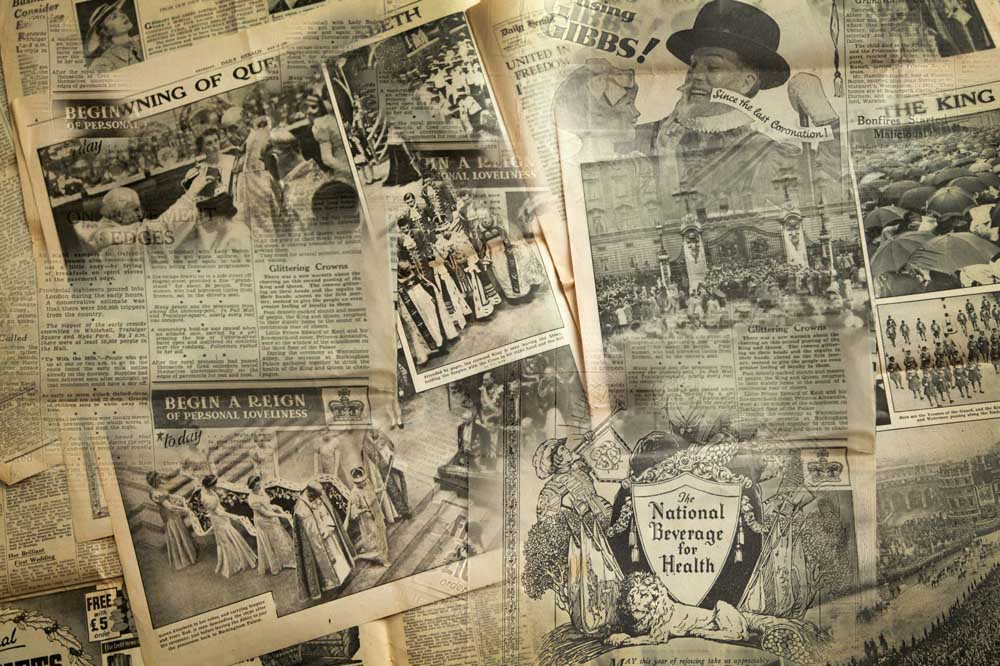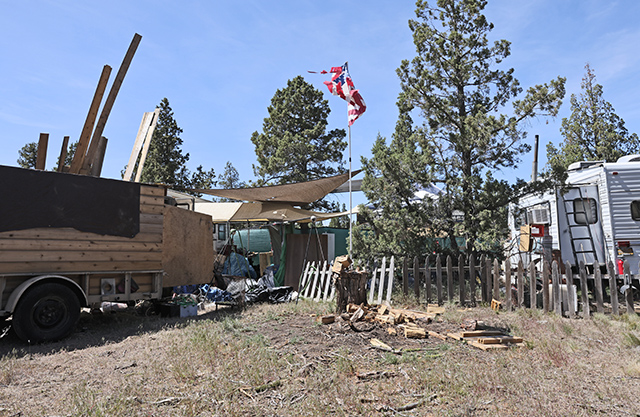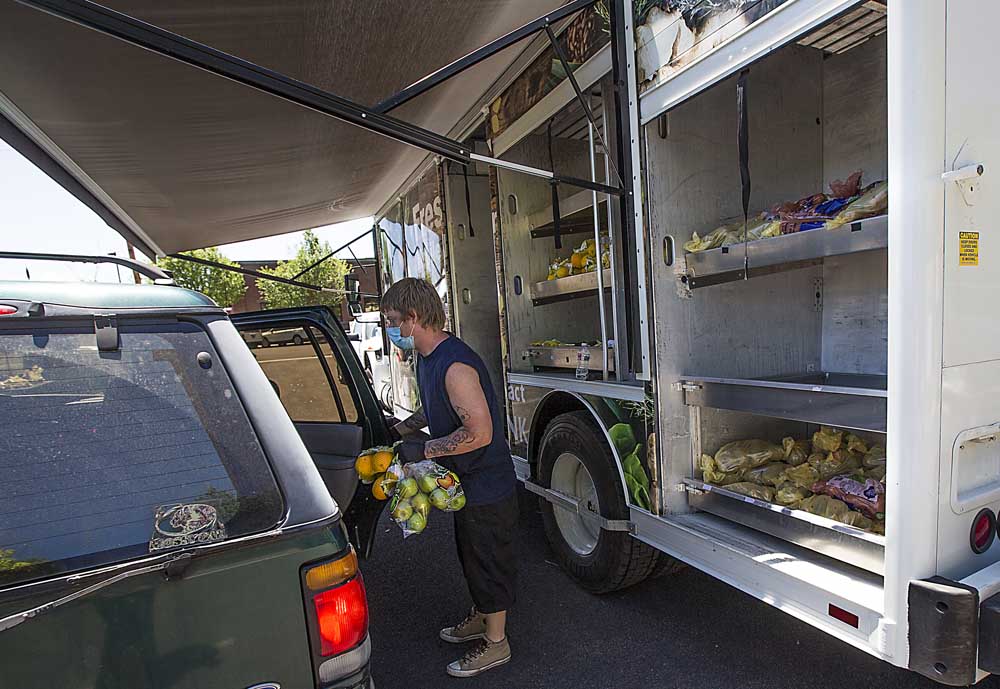Yesteryear: Redmond cow has production record; Abundant water supply available for 1949 season; After 75 years, life goes on at the Metropolitan Barber Shop
Published 12:00 am Sunday, December 31, 2023

- Yesteryear
100 years ago
For the week ending
Jan. 6, 1924
Union district is created by voters’ action
Approved by a vote of 392 to 45, a union high school district, consolidating district 1 and 37 for high school purposes, came into existence Friday evening. The vote, one of the largest cast at a school election in Bend in recent years, will be formally canvassed by the district boundary board and a bond issue of from $175,000 to $200,000 for the erection of a high school structure on a side adjacent to the school gymnasium will be submitted to a vote of the taxpayers within 21 days from the time a union high school board composed of eight members from districts 1 and 37, holds its first meeting.
Klamath Falls road is thought blocked
Indications that snow is deep to the south of Bend and that The Dalles-California highway is probably blocked to automobile traffic for the winter, were apparent here today. Telephone lines were down between Bend and La Pine, and no report of conditions there could be received. It was snowing heavily at the logging camps south of Bend Sunday evening, and it is probable that there is at least a foot of snow within a short distance south of Bend and more near the summit on the highway.
Redmond cow has production record
Florence Idella Sharp 2nd, a Holstein cow in the herd of Henry McCall, at Redmond, recently completed an extraordinary record for the production of butter. According to the advanced registry office of the Holstein-Friesian Association of America this cow in 365 days produced 16,427.7 pounds of milk containing 605.46 pounds of butter fat, equal to 756.8 pounds of butter.
The advanced registry system of the national Holstein association was started 38 years ago and has constantly grown in importance. Dairymen are recognizing the superior value of a purebred bull to increase the production of their herds and are selecting those which show advanced registry breeding, the association claims.
75 years ago
For the week ending
Jan. 6, 1949
Bottom drops out of Arnold Canal
Repair of the Arnold district’s main canal, in the big rock cut near the flume, was nearing completion today, as truckload after truckload of cinders and dirt were dumped into a yawning hole. The big hole developed in the lava bottom of the canal earlier in the week. The canal was carrying only 15 second feet of water at the time, and this entire flow disappeared into the hole. With a bureau of reclamation crew in charge, rocks were first dumped into the crevasse. Cinders were piled on top of the rocks. Providing a seal, dirt was then packed on top of the cinders.
New Reid school occupied by classes
Bend’s newest school, the six-room structure temporarily known as the New Reid school, was placed in use this morning when six sections of pupils marched across snow from the old Reid building to their new class quarters, shortly after 9 o’clock. Work on the structure started in mid-summer and the job was rushed in the closing weeks of 1948 to make use of the school possible as the new year opened.
In the group moving from the old to the new building this morning was Albert W. Nelson, Reid principal, who finds himself with two schools under his supervision as the new year starts. Five sections still remain in the old building, with Miss Irma Klinghammer as head teacher. Six teachers moved with their classes from the old building. In occupying the new plant this morning, Reid pupils vacated the entire third floor and two rooms of the second floor of the old building. Lower rooms of the old building will remain in use until new quarters are constructed. Eventually, the old building will be abandoned.
The new structure, erected on grounds near the old Reid school and adjacent to Episcopal church property, is considered Bend’s finest school building. Spacious halls, large, well ventilated rooms and modern lighting feature the structure.
Abundant water supply available for 1949 season
Central Oregon irrigationists face another season of abundant water despite the fact that the new North Unit’s entire 50,000 acres will be under cultivation for the first time, it was learned today.
It now appears certain that all reservoirs and storage basins will be overflowing well in advance of the irrigation season, and that natural flow will be racing through the Deschutes channel and north to the Columbia long before the eastern Cascade water is needed on midstate farm lands.
High reservoir levels this early in the storage season are attributed to the abnormally wet year of 1948. Still to flow into the big storage basins is water from the heaviest early January snow pack in more than a decade, with February and March snow yet to come.
Sexton named mayor of Bend for year 1949
T.D. Sexton, who has headed the city government since the recall election of last November, was named by his fellow commissioners last night to continue as mayor of Bend through 1949. No other name was submitted and the election was unanimous.
50 years ago
For the week ending
Jan. 6, 1974
Deschutes to be lowered
The Deschutes River in Bend will be lowered soon to expose algae in the water and retard its growth, according to Vince Genna, Bend’s parks and recreation director. Along with the announcement, Genna issued a warning that the exposed mud is like quicksand. Children should not play in the area when the level is down.
The river level is lowered every winter to expose the algae to the cold, thus slowing down its growth. The annual algae kill helps keep Mirror Pond looking mirror-like. Pacific Power and Light Co. can control the river’s level at its power plant on the river near the Elks Club. The level will be lowered from the Brooks-Scanlon, Inc., railroad bridge to the PP&L plant. PP&L manager Harold Baughman was not sure what day the process would be started, because the cold weather has frozen one of the plant’s turbines. Water must flow through the turbines to lower the river level. He said, however, that less water is coming down the river now because more water is freezing higher up the Deschutes.
When the water level is reduced, the banks of the river recede and expose soft mud. Genna warned parents to keep watch on their children during the four to five days the river is down. Genna also warned about children playing in portions of the river which are frozen. Last year, Genna said, a child almost drowned when he fell through a hole in the ice.
25 years ago
For the week ending
Jan. 6, 1999
Life goes on at the Metropolitan Barber Shop
It’s been a long while since pomades, oils and tonics slicked up men’s hair. But way back then, when Brillianteen and Wild Root Cream Oil were dripping of every head in town, the Metropolitan Barber Shop on Wall Street opened its doors offering a shave and a haircut for 60 cents.
That was in 1923, 75 years ago last month. A haircut costs a little bit more now — 9 bucks — but Metropolitan owner Gerry Servo said the price hasn’t really gone up at all. “A haircut,” he said, “has always cost about what it costs you to get a decent dinner. Cut a head of hair, you can buy dinner.”
Servo is the 12th owner of the shop, originally opened by a pioneer named Creed Triplett.
Triplett played a part in Bend’s hair history even before 1923. He opened The Pioneer, at that time the only hair-cutting place in town, in 1905, on the very spot where the modern-day Metropolitan stands. He cut hair there until 1912, when a fire destroyed all the buildings at the corner of Wall Street and Oregon Avenue. He moved around the corner, and sold the business.
After 11 years, the renamed Metropolitan moved back to the original Pioneer location in 1923.
Bend was a dusty frontier town back then, and the newly rebuilt Metropolitan catered to farmers and cowpokes with hot showers, baths and shoeshines in addition to haircuts. The Metropolitan has always been a successful shop, never more so than now, but Servo said there was a time when barbers all over the country saw business slipping away. The culprit — the post-hippie generation.
Back in the ‘70s and ‘80s, it looked like the old-fashioned shave-and-a-haircut-style barber shop was going to curl up and die, a victim of longer hairstyles and uni-sex hair salons. The Modern Barber School in Portland, where Servo and former Metropolitan owner Gerry Evanhoff learned the trade back in the ’50s, had closed its doors by the end of the ’60s.
“You had to be willing to change,” Servo said, speaking of old-school barbers forced out of business because they wouldn’t not learn to cut the new longer hairstyles. “To keep customers, you had to learn to style. And, you had to call yourself a barber-stylist. I changed, but I didn’t change my name to Pierre or none of that.”
A day spent in the chair reveals one thing. The barber shop is back. Forget the image of drowsy barber nodding off in his chair because these days, the Metropolitan always has a waiting list, even with four barbers chopping away. Servo credits the new, shorter hairstyles.
Jim Wilson said he cuts between 20 and 30 heads a day. He works fast, with his scissors flashing, but he can’t recall ever nicking anyone.
Dell Yates stands up after a trim and dusts off his knees. He’s been coming to the Metropolitan about every two weeks since 1959, when he was just 25. That works out to 960 haircuts, so far.
“I just love to come in and talk to the guys,” he said. “Seems like you get in a rut and come to the same barber. It’s been a real good rut.”






